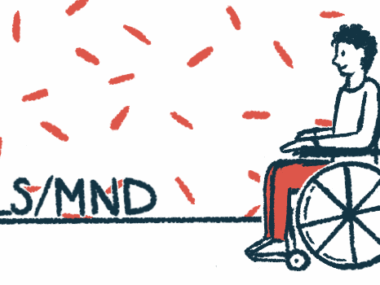Phase 2 trial of oral IFB-088 for bulbar-onset ALS now fully enrolled
InFlectis BioScience anticipates initial trial data by year's end
Written by |

Enrollment is complete in a Phase 2 trial testing InFlectis BioScience’s oral candidate IFB-088 (icerguastat) in people with amyotrophic lateral sclerosis (ALS), the company has announced.
The trial (NCT05508074) enrolled a total of 50 adults with bulbar-onset ALS, a form of the disease that first affects the muscles in the head and neck, leading to swallowing, chewing, and speech difficulties.
Participants were randomly assigned to receive IFB-088 or a placebo, given as an add-on to riluzole, an approved ALS therapy sold as Rilutek, Tiglutik, or Exservan. Treatment will be given twice a daily for six months, and early results might be presented later this year.
“We dosed the first patient in December 2022 and randomized the last patient on January 30, 2024,” Anne Visbecq, MD, InFlectis’ chief medical officer, said in a company press release. “Following the six-month treatment period, we look forward to reporting our initial findings as early as the end of this year.”
Phase 2 trial results will determine timing, scope of potential global study
“These results will determine the timing and scope of a potential global registration study in the overall ALS population,” Visbecq added.
ALS is characterized by the progressive dysfunction and death of motor neurons, the nerve cells that control voluntary movements. About one-third of patients have bulbar-onset ALS, which is more aggressive and has a shorter life expectancy than limb-onset ALS, in which first symptoms are associated with weakness in the muscles of the arms and hands, or legs and feet.
IFB-088 is an orally available small molecule capable of crossing the blood-brain barrier, a cell layer that protects the brain from disease-causing agents and toxins that may be present in the blood.
The medication inhibits the PPP1R15A/PP1c protein complex to keep a natural cellular stress-response mechanism active. This is thought to give stressed cells additional time to correct their protein imbalances and eliminate protein clumps, a hallmark of ALS that contributes to neurodegeneration.
IFB-088 also serves as an inhibitor of certain glutamate receptors. These receptors are involved in a process called excitotoxicity, in which neurons are over-stimulated and fire much more than needed, leading to nerve damage.
An earlier Phase 1 trial (NCT03610334) involving healthy volunteers showed the investigational therapy is generally safe and well tolerated. The therapy was given at doses ranging from 2.5 mg to 60 mg daily, and no reports of serious adverse events or dose-limiting toxicities were reported.
The ongoing Phase 2 trial enrolled 50 patients at sites in France and Italy who are receiving 50 mg daily of IFB-088 — given as two oral 25 mg capsules 12 hours apart and 30 minutes before a meal — or a placebo, for 26 weeks. All are also taking riluzole in the form of tablets (Rilutek and generics) or a suspension formulation (Tiglutik) at a daily dose of 100 mg, given as two 50 mg doses every 12 hours.
Trial to examine IFB-088’s safety, ability to slow functional decline in patients
The trial’s main goal is to assess the treatment’s safety and tolerability, but researchers will also examine if the therapy can slow patients’ functional decline, reflected by changes in the ALS Functional Rating Scale-Revised.
Two staging systems — the King’s College and the Milano-Torino systems — will also be used to assess changes in patients’ clinical progression and treatment response. The therapy’s effect on the patient’s quality of life and disease-related blood biomarkers will also be assessed.
“This trial reflects our commitment to bring a novel molecule with a unique mode of action to ALS patients, starting with patients suffering from bulbar-onset ALS, the most aggressive form of the disease,” Visbecq said.
IFB-088’s development and the Phase 2 trial were financially supported by the ALS Association, AFM-Téléthon (a French patient organization fighting rare neuromuscular diseases), and Bpifrance (the French public bank of investment). The trial was approved in 2022 by the French health authority ANSM.
Also in 2022, IFB-088 was granted orphan drug designation by the U.S. Food and Drug Administration. The designation is meant to accelerate IFB-088’s clinical development and review by providing regulatory support and financial benefits, and a seven-year marketing exclusivity if the therapy is ultimately approved.







